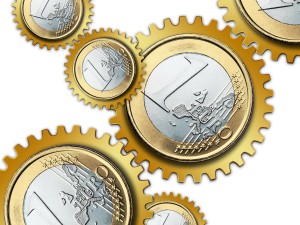Maybe you never ever thought about it, but… there are many expressions in each language that reveal whether you have a positive or a negative mindset. Certainly with some expressions that you use all day without thinking.
Let’s take this example: how old are you? Did you see it? The suggestion is that you are already old! You may think that this is how you say it in each and every language, but this is not true… If you ask in Spanish cuántos años tienes? then you ask about the quantity of years and this does not necessarily mean that the quantity is high. Also in Turkish you say kaç yasindasin? which literally means in which year are you? Once again, no judgment here!
In Dutch you would probably say: hoe oud ben je? Also here, you see the suggestion that you are already old. Here is also a typical thing… Cloggies older than 50 sometimes love to say: ik ben 50 jaar jong (I am 50 years young), but chances are high that only few people will really believe them…
Then let’s have a look at the word age in: what is your age? I don’t know about you, but this really sounds like stone age, or ice age, something from a long long time ago and if you say that something took ages, then probably it is not that positive when it refers to your age, right?
How do you really feel about time and money?
Here is a strange thing. The word age comes from French, but in French it has quite a neutral meaning. Somehow in English they started to play with it, so that now it sounds more negative.
Believe it or not, the Dutch for age is quite positive. It is leeftijd, a combination of leven + tijd, the time that you have been alive. All of a sudden, it sounds like something that is very useful!
Now that we are talking about time, what would you say about the next sentence? What time is it? Don’t you see the beauty of objectivity here? This is not how Dutch people would do it, they would simply ask: hoe laat is het? (how late is it?) assuming that it is already late… It might be a small thing, but if you think that it is late all the time, then chances are high that you could feel stressed all the time!
So now that you know some phrases about time, let’s talk about another scarcity….. Money! If you ask how much something costs, then here we have it again: you automatically assumed that it was much! Other languages like Spanish (cuánto cuesta?) and Turkish (kaç para) are completely neutral about it. But not the Dutch… they love to say: hoeveel kost het (how much does it cost) as well… on top of it, many cloggies even say this: hoe duur is het? (how expensive is it?) while already assuming that it must be expensive.
Here is another peculiar thing in Dutch. Kosten (costs) only exists in plural. A cost never comes alone, which is a bad thing… In Dutch when you have to pay, you’ll always have to pay more things, at least this is what the cloggies seem to think. On top of that, there is also another word which is onkosten (uncosts). This is like money that you have to spend if you want to make some profit or run a business… Somehow onkosten sounds more negative than kosten, because with onkosten it feels that you really loose money!
But, let’s end with a positive note about the Dutch language. Goedkoop is cheap and it literally means a good buy or purchase. Therefore, even if a Dutch person may feel that often there is no time, there is always one thing that can make you happy… just buy something goedkoop and you can literally feel the joy of making a good money investment!
By the way, what would you think? Is English more positive or negative than Dutch? What about the language that you speak? Please feel free to come up with some examples in the reaction field below! Feel free to use your language, just combine it with a translation if it is not English :)





